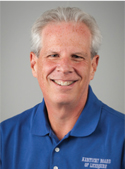August/September 2014
As Times Change, Code Stands as Constant Guide
Engineers have to adapt to the latest trends, technology, and business practices, but NSPE’s Code of Ethics is a steady resource to untangling difficult questions.
BY MATTHEW McLAUGHLIN
A
 s is the case with all professionals that have a direct and vital impact on the lives of people, it is expected and frequently required by law that those who practice engineering be of the utmost integrity. Ethical practice is therefore important for the protection of the health, safety, and welfare of the public as well as the protection of the profession and the individual careers of professional engineers.
s is the case with all professionals that have a direct and vital impact on the lives of people, it is expected and frequently required by law that those who practice engineering be of the utmost integrity. Ethical practice is therefore important for the protection of the health, safety, and welfare of the public as well as the protection of the profession and the individual careers of professional engineers.
Keeping both feet firmly planted on the ethical path may not always be easy however. If it was, there would be no need for PE magazine to publish ethics case studies considered by NSPE’s Board of Ethical Review each month (see On Ethics—You Be The Judge: Quid Pro No?). There would be no need for the Board of Ethical Review at all.
“Some people recognize unethical situations, some people do not…some unethical situations are clear, some are not,” says Jerry Carter, chief executive officer of the National Council of Examiners for Engineering and Surveying. “It sometimes is an unintended action. Somebody doesn’t realize until after the fact, when it’s pointed out to them.”
Since its founding, NSPE has offered guidance on matters of ethics, and in 1964 the board adopted the NSPE Code of Ethics as we know it today, though it has been amended and revised on numerous occasions. The fundamental canons of the code are that professional engineers, in the fulfillment of their duties, shall:
-
Hold paramount the safety, health, and welfare of the public.
-
Perform services only in areas of their competence.
-
Issue public statements only in an objective and truthful manner.
-
Act for each employer or client as faithful agents or trustees.
-
Avoid deceptive acts.
-
Conduct themselves honorably, responsibly, ethically, and lawfully so as to enhance the honor, reputation, and usefulness of the profession.
While no two ethical dilemmas are exactly the same, the NSPE Code of Ethics is a helpful guide through them all. Technology and new trends in engineering may make some unethical behavior harder to recognize or easier to engage in, but at its core unethical behavior is no different than it was 20 years ago. A good example of this is the shift from hardcopy to digital engineering plans.
“A growing issue that we’ve been dealing with, because of the ability to transmit plans electronically and store huge quantities of data relatively easy now, is engineers leaving their place of employment and taking information with them,” says John Greenhalge, executive director of the Ohio State Board of Registration for Professional Engineers and Surveyors. “Sometimes it’s just a case of they want to have some memory of projects they’ve worked, but in other cases we’ve had them actually use that information with a new firm.”
Despite how technology has changed such ethical misconduct, the NSPE Code of Ethics is still easily applied to the situation. Section III.9 of the code states, “Engineers shall give credit for engineering work to those to whom credit is due, and will recognize the proprietary interests of others.”
“They really should speak with their employer and make sure whatever they’re taking or whatever they want to take is okay with their employer,” Greenhalge says. “We actually had a case where we did have a young engineer who worked on a bridge or highway project, and I do believe he took the information because he just wanted to have a record of it. Then he got to a new employer who was actually bidding on a segment of that, so he went and accessed his information…so what started out as probably a harmless situation ended up [with] him getting suspended and disciplined.”
Changing Cultures
Another new trend making unethical behavior more difficult for engineers to recognize and possibly easier to engage in, according to BER Chairman Daniel O’Brien, P.E., F.NSPE, is the increasing number of mergers and acquisitions among engineering firms.
“You’re moving from much smaller engineering firms to much larger,” he says. “Companies are merging to try and pick up different markets. Maybe firms that were solely wastewater, or solely transportation, or solely structural, they’re merging and now there’s a blended set of markets within the company, and so now you’re also dealing with different company cultures and possibly different company policies…and those could potentially pose challenges.”
Mergers can also lead to increased emphasis on financial performance, and larger engineering firms mean larger workforces, which can lead to less oversight, according to O’Brien.
“As any operation grows, it has the potential to grow a little bit unwieldy,” he says. “With the nature of growth you have the potential to not have that same degree of oversight that you once had, so you want to make sure that you continue to maintain a strong QA/QC procedure. What you had in the smaller firm may not work in the larger firm, but you still need some variance of that.”
The BER chairman also believes design-build delivery methods are making the practice of ethical engineering more challenging. “You have to be cautious the push for profits and efficiency does not become the primary concern of the engineering element,” O’Brien says. “You still have to maintain your obligations as an engineering firm, even though you’re in a partnership with a contractor.”
Familiar Issues
As challenging as new trends like advancing and changing technology and design-build delivery methods are for the ethical practice of engineering, some of the most prevalent and challenging ethical dilemmas of today are as old as the profession of engineering itself. Conflict of interest, professional competency, and protection of the public all rank among the most common ethics issues in engineering today.
Even a quick look at the number of BER cases on conflict of interest topics makes it clear they outnumber cases on every other ethics topic. Conflict of interest cases fill two pages of the NSPE Ethics Reference Guide’s table of contents to Board of Ethical Review opinions.
“The most prevalent topic is conflict of interest,” O’Brien says. “That continues to be the one that comes up in the most situations.”
David Cox, executive director of the Kentucky State Board of Licensure for Professional Engineers and Land Surveyors, has seen the continuing challenge posed by conflict of interest issues first hand.
“What is a conflict and what isn’t? Every time you think you have it nailed down something else comes up,” he says. “The advice I give people is, first of all, if you’re having feelings that there might be an issue, odds are there is an issue because you’re feeling that way about it, and the other advice I give is [to ask] would you be upset if this were discussed on the front page of your hometown newspaper.”
“It’s fairly convoluted but therein lies the advice of most attorneys and other experts,” Carter says. “If there’s any reason to think that there’s even the appearance of a conflict, [engineers] should make that information known. Often times the conflict doesn’t exist as long as it’s made known and is public; so long as you talk about it and people are made aware of it, then they can’t claim that it was conflict of interest. Just communication and information generally eliminates any potential conflict.”
O’Brien also recommends having well defined company and public agency policies with practical examples of conflicts of interest. Additionally, engineers should include the study of conflict of interest ethics issues in their ongoing education, he suggests.
Other licensing board representatives also reported conflict of interest as a common complaint as well as professional competency and protecting the public. In cases of professional competency and protecting the public though, it is less likely an engineer failed to recognize the unethical nature of their actions and more likely they willfully acted unethically. It is these situations, however, that put honest engineers in difficult positions because of their duty to report.
“That really scares a lot of people because that can be a job killer, when you tell your boss, ‘No, I won’t do that because it’s unsafe,’ and your boss says, ‘Do it anyway,’ and you proceed to seek outside opinion or correct the problem otherwise,” says Neil Norman, P.E., F.NSPE, the BER’s Western and Pacific Region representative. “That’s a very difficult decision for an engineer to make.”
BER Southwest Region Representative Robert Andreoli, P.E., agrees that unethical behavior by engineers and nonengineer supervisors can put honest and ethical engineers in very difficult positions.
“I think what engineers get faced with a lot is when they see something going wrong or they design something and they’re being overridden by a manager who’s not an engineer; now they’re in a very difficult situation,” he says. “He’s basically being challenged, and he has all these other things that he needs to think about—not just himself but his whole family.
“There are no protections for the engineer,” he adds. “I would like to see some protections.”
In spite of the challenges unethical behavior puts in front of honest and ethical engineers, ethical behavior isn’t necessarily a job killer, as Norman put it. Norman himself, who spent 50 years in industry, raised ethical concerns on a number of occasions throughout his career and benefited from doing so.
“As a licensed engineer I’ve certainly had a number of occasions, probably eight or nine, where I’ve had to tell a boss, ‘No, we can’t do that because it’s either against the law or it’s dangerous to public health and safety,’ and it never enamored me of that particular boss, [but] I never got fired,” he says. “It’s even redounded to my benefit within a company on numerous occasions. I think in the area of practice where you are working, you become known for your behavior pretty quick.”
Since its founding, NSPE has supported and offered guidance on the ethical practice of engineering.
NSPE Board of Ethical Review
Formed in 1954, the BER serves as the profession’s guide through ethical dilemmas and interpreter of the Code of Ethics.
Made up of seven licensed members appointed by the NSPE president, the board renders impartial opinions pertaining to the interpretation of the NSPE Code of Ethics, develops ethics materials, and conducts ethics studies. All published opinions of the board are available on NSPE’s website.
Milton F. Lunch Ethics Contest
The Milton F. Lunch Ethics Contest gives NSPE members an opportunity to test their ethics knowledge against PEs and engineering students from across the US by applying it to a fictional scenario.
BER provides the scenario and ethics question each year. Contestants must develop discussion and conclusions using the BER format for published opinions and give references, citing only specific sections of the NSPE Code of Ethics.
To be added to the mailing list for information about the upcoming 2015 Milton F. Lunch Ethics Contest, please send your name, mailing address, e-mail address, and phone number to:
2015 NSPE Milton F. Lunch Ethics Contest
NSPE Legal Department
1420 King Street
Alexandria, VA 22314-2794
Or e-mail [email protected]
Online Seminars and On-Demand Courses
NSPE frequently offers live online seminars on ethics and other subjects, as well as on-demand courses. On-demand courses also cover other subjects and are available 24/7.
Some examples of ethics topics addressed in web seminars and on-demand courses are conflicts of interest, engineers’ duty to report, communications and marketing, balancing the interests of employers and clients, and online engineering services.
Engineers’ Creed
Ten years before NSPE adopted the Code of Ethics as we know it today, the Society in 1954 adopted the Engineers’ Creed—a short statement of philosophy of service, similar to the Hippocratic Oath for medical practitioners or similar oaths of the legal profession. The Engineers’ Creed is used widely in NSPE, state society, and local chapter officer installation ceremonies; licensure certificate presentations; and engineering school graduations.
“As a professional engineer, I pledge: to give the utmost of performance; to participate in none but honest enterprise; to live and work according to the laws of man and the highest standards of professional conduct; and to place service before profit, the honor and standing of the profession before personal advantage, and the public welfare above all other considerations. In humility and with need for divine guidance, I make this pledge.”
Additional Resources
NSPE offers a variety of additional resources related to engineering ethics, including an online ethics examination for engineers to test their ethics knowledge and a number of publications and reports available online or for purchase from the NSPE store. For more information on these additional resources, visit the ethics section of the NSPE website.


 Volunteering at NSPE is a great opportunity to grow your professional network and connect with other leaders in the field.
Volunteering at NSPE is a great opportunity to grow your professional network and connect with other leaders in the field. The National Society of Professional Engineers (NSPE) encourages you to explore the resources to cast your vote on election day:
The National Society of Professional Engineers (NSPE) encourages you to explore the resources to cast your vote on election day: –DAVID COX
–DAVID COX Don’t forget to check out NSPE’s live online seminars and on-demand courses. bit.ly/1pmWmxL
Don’t forget to check out NSPE’s live online seminars and on-demand courses. bit.ly/1pmWmxL